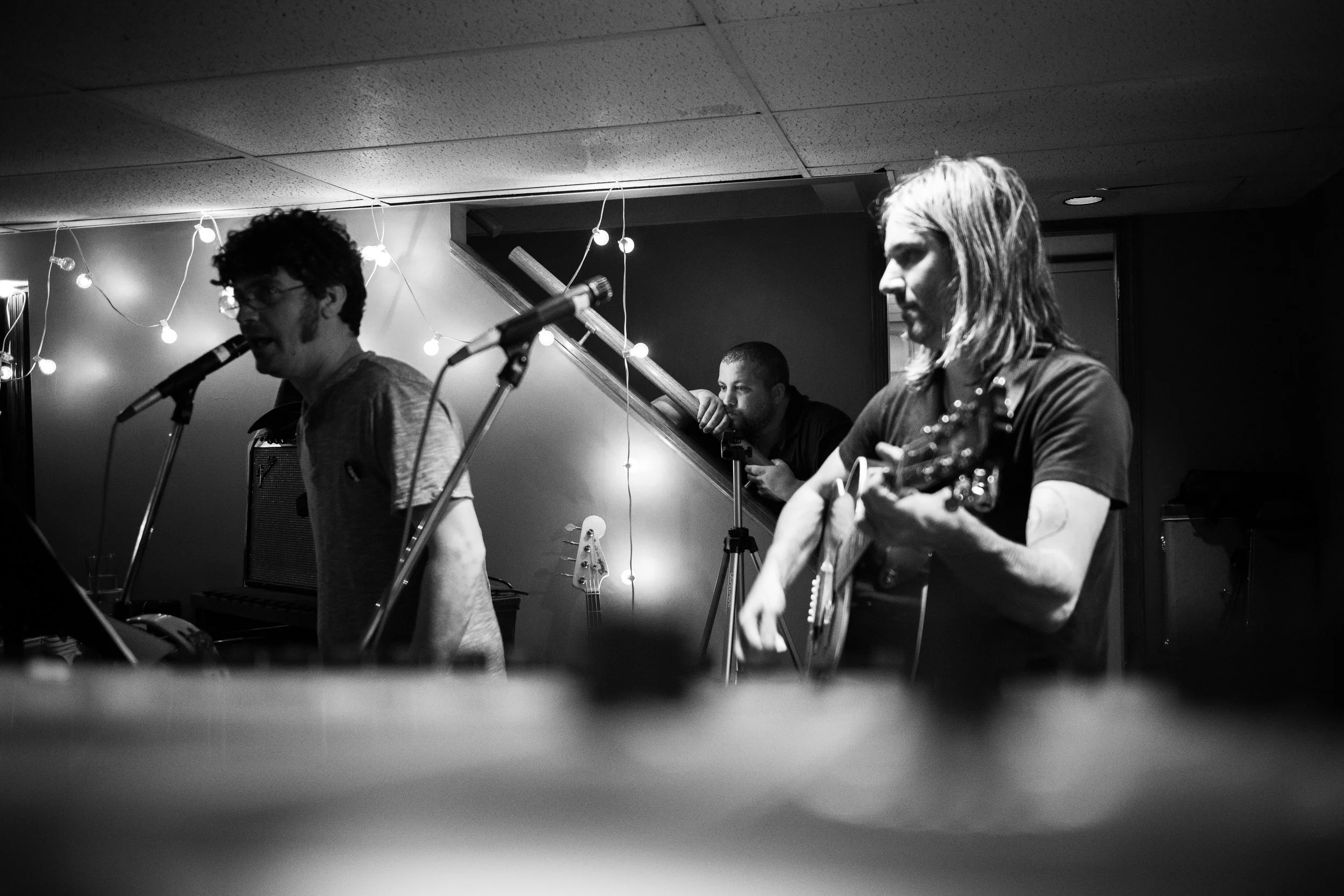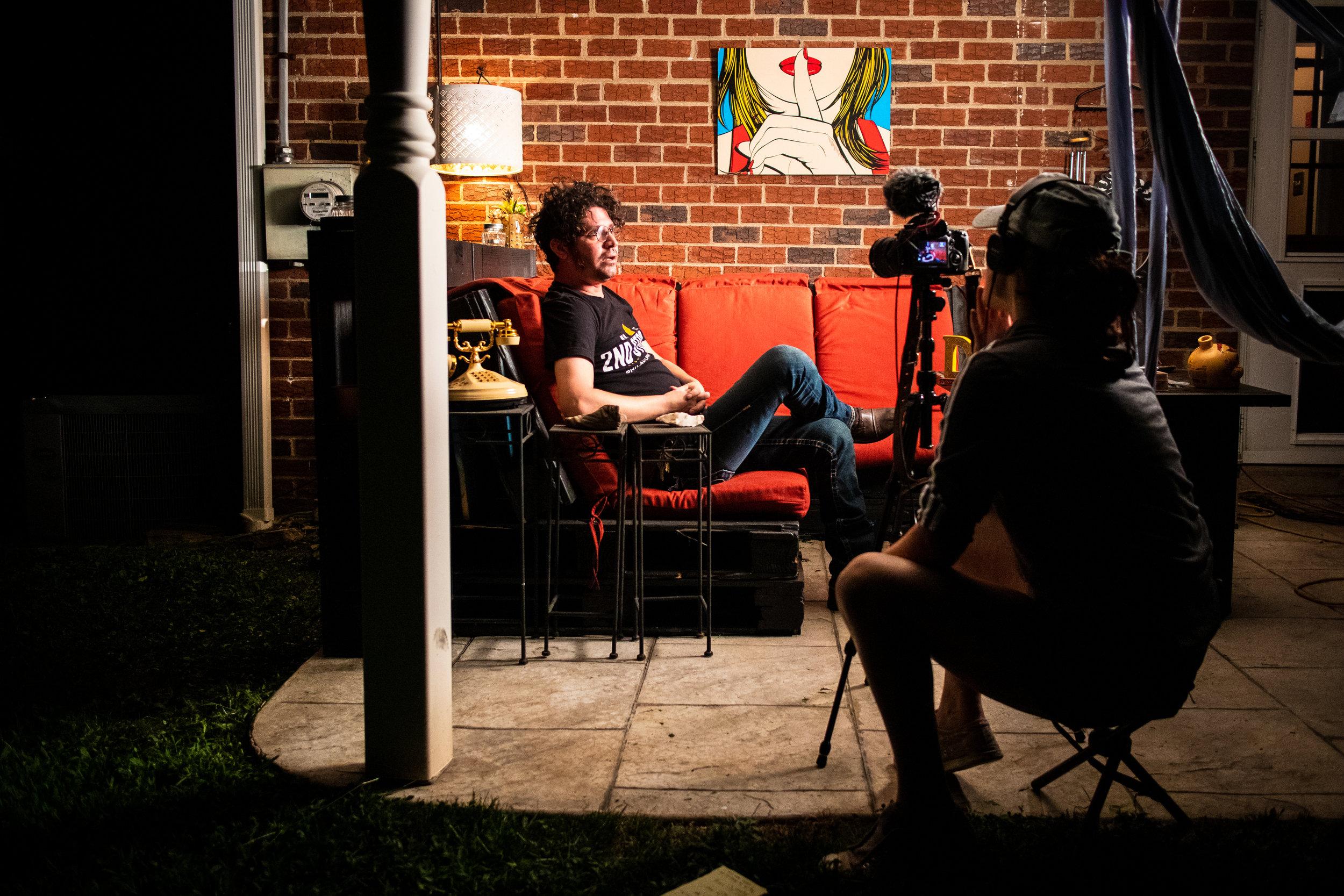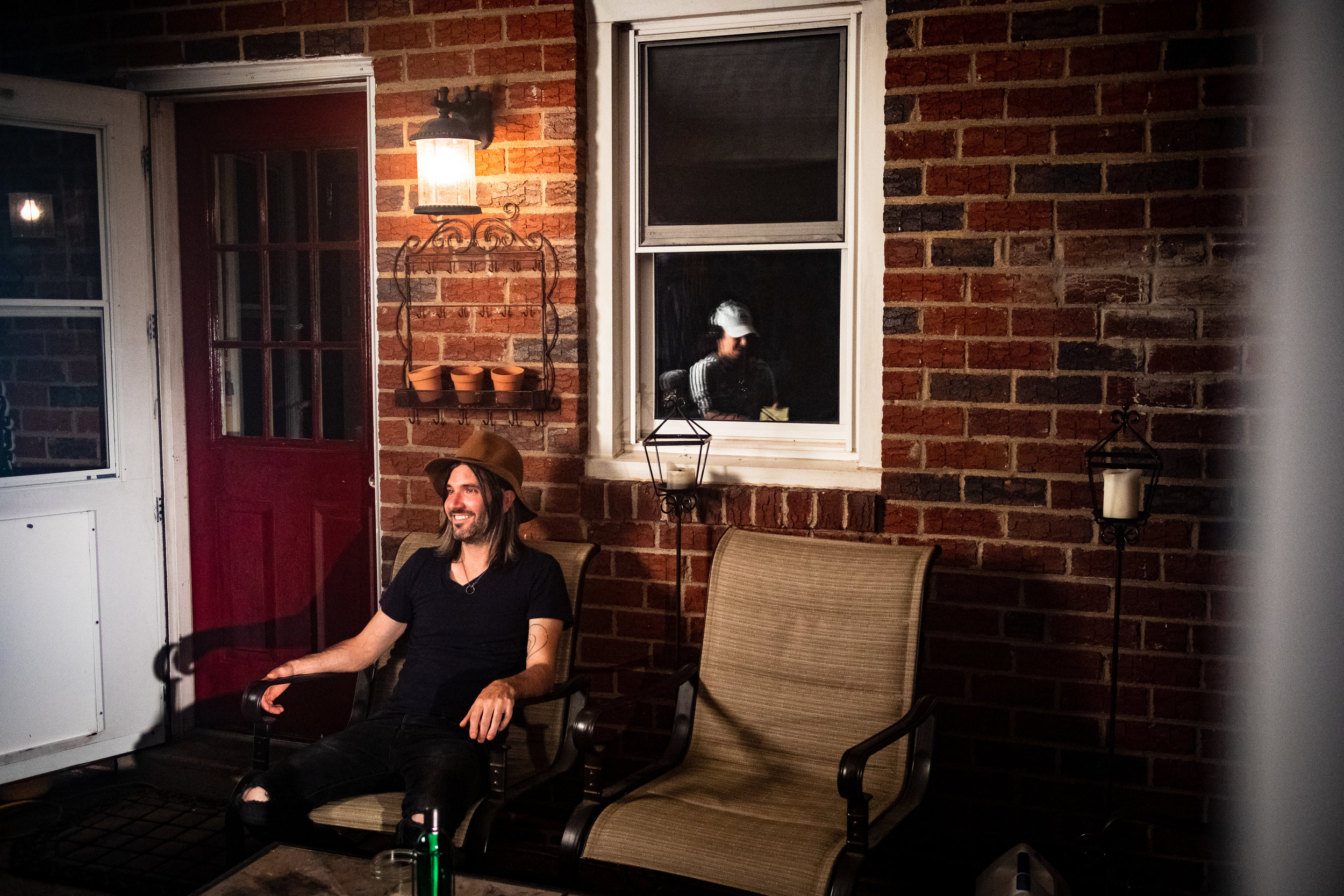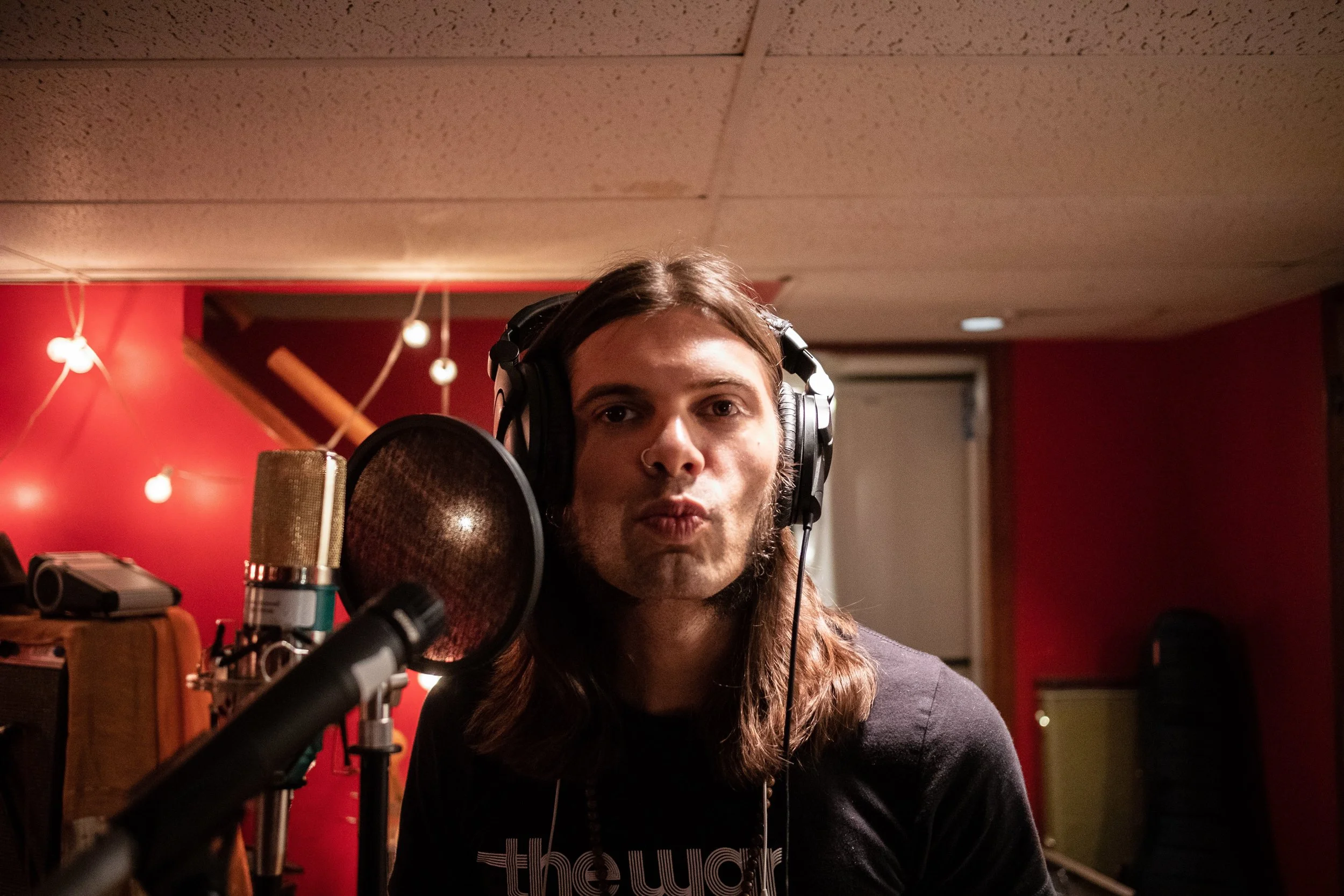It was December 10th and Nick Perri wanted to make it snow for Christmas. He had given me the panic-inducing assignment of getting a 25-pound box of styrofoam, a pair of box fans and two gallons of fog juice delivered to a concert venue where his band, The Underground Thieves, was set to play a show on Christmas Eve-Eve. I had two weeks - over the busiest shopping season of the year - to have all of this stuff delivered in time for sound check, where we would then have to improvise one of the biggest stunts we’d ever attempted. I immediately began praying that the gods of Amazon Prime weren’t too busy double-checking Santa’s naughty list to pull off this tiny miracle. This is the kind of thing one does when one gets the call from Nick Perri.
Back in the day, my introduction to the music business had been awkward and rocky, but Nick was one of the first musicians to pull me into the industry and guide me around the periphery of its vague rules and practices. Terrified of being discovered as some kind of uncool and unbelonging imposter, I tried to adapt quickly to those rules by meekly standing in silence and only speaking when being spoken to. It wasn’t a great methodology for a writer and a filmmaker, but over time I found more comfortable ways to ask questions and give direction from behind my camera. It was survival mode, and I was doing anything I could, hoping that someone - anyone - would pull me over the line into a place where my footing felt secure in that world. Once I was in, my job largely became about the ideas that I could bring to the table, and how I could help others execute on their own. I hit the ground running so quickly that the rest of it blurred around me: the shows, the tours, the venues, the vans, the gear, the soundguys, the catering, the merch tables. Even at the worst of times, the rear-view mirror is so rose-colored that I remember everything and nothing.
Nick Perri
Nick is a world-class musician, widely regarded as one of the best rock guitar players of the past two decades. He has asked me to be a part of nearly every project he’s worked on since I met his first band, Silvertide, in 2006. Since then, he’s sought input and support when starting his own line of guitars and pedals under the name, Perri Ink; he consulted and discussed his responsibilities when he was hired to produce a promotional album for a major corporate partner; and I’ve been a road manager for every musical endeavor and tour he’s started since Silvertide. He’s trusted me enough to help me get hired by other musicians, and our relationship is so special that he’s evolved from client, to friend, to dharma buddy, to collaborator; most importantly, he’s usually all of those things at the same time. At the risk of insulting his proud Italian heritage with an easy-but-accurate stereotype, I may be the Tom Hagen to his Michael Corleone; not quite a wartime consigliere, but I can usually deliver when he asks for my help. I’ve created so many colorful memories with Nick that they make up a considerable amount of the blur from my life in music.
Nick’s requests have often been oversized, but always offer opportunities to reinterpret and scale the current arena rock experience down into the smaller venues. It’s these places where lifelong love affairs are sparked inside the intimate distance between hungry musicians on stage and the eager audiences who congregate right in front of them. These missions from Nick continue to add detail and dimension to a truly earnest and completely uncynical fable about music that he’s been writing throughout his entire career - a career that has so far contended with one of the most jaded and cynical periods in the history of entertainment.
This isn’t your typical rags-to-riches breakout story. A lack of salacious drug overdoses and groupies have kept it from appearing across rock’s faded journalism or today’s cult of personality. Nick is a man of bold and expansive ambitions, and no matter how outlandish or seemingly impossible, he has this remarkable ability to rally those around him into making it work. Aim high, execute higher.
He has spent nearly twenty years fighting for the soul of rock and roll, exhaustively trying to preserve a certain mindset and attitude which was long ago abandoned by an industry that prefers to reach for homogeny. Instead, through his own personal ethos and the music he creates, Nick is crafting a salvation story, one in which rock and roll saves itself from its own mediocrity. And to do that, it means that we sometimes need to figure out how to make it snow inside a building.
It’s hard to overemphasize the exciting developments currently happening with The Underground Thieves. The project started in early 2018, and its first year featured all of the fits and starts of a band’s inauguration. In its second year, however, the band has found its lane, securing a remarkably talented lineup and releasing a handful of singles that are quickly spreading across social media, all of which lends credibility and confidence to Nick’s ideas.
The band is assembled from parts of his favorite musical comrades - a collection of artists who all came up together in Philadelphia in the early aughts. Bassist Brian Weaver has played with Nick since Silvertide and briefly in Nick’s last project, Mount Holly. Brian is the truest consummate professional musician: in-demand, accomplished, talented beyond measure. His bass lines and name have graced some of the biggest albums of the last few decades, but he’s egoless, full of experience and wisdom, and insanely reliable. If most successful bands are made of people who treat each other as family, Nick and Brian have that rare bond that goes beyond brotherhood, where they understand each other, creatively, on a cellular level.
Foreground: Anthony and Michael Montesano. Background: Doc Carbine
Anthony and Michael Montesano are actual brothers, the kind who somehow communicate across a spectrum of frequencies only they hear. Each is well-skilled in singing, performing, multi-instrumentation, and producing; together they compliment each other in perfect balance. Michael and Ant come from Pepper’s Ghost, a band which frequently shared a stage with Silvertide back in the day. They currently divide singing duties with Nick and keyboardist Justin DiFebbo - a relative newcomer to Nick’s universe, but easily the missing piece of everything that has come before.
Zil Fessler and Justin DiFebbo
Justin is often throned behind a shiny black Hammond organ, an electric synthesizer, and a Rhodes piano, combining all three into a harmonic sound that’s equal parts Pink Floyd as it is The Doors. Justin once belonged to a band called K-Floor, along with Thieves’ drummer, Zil Fessler, who’s never met a drum fill he can’t create and improve. Fessler’s substantial career has kept him in demand for decades, and in addition to drumming for acts like Rusted Root, he was also in Pepper’s Ghost with the Montesanos, making this whole ordeal just slightly more incestuous.
Each band - Silvertide, Pepper’s Ghost and K-Floor - played their own brand of bluesy, ballsy rock and roll during that genre’s last big revival. This group of talents - friends for a lifetime - have individually and collectively been through the ringer of the music business, and they have arrived at this moment with more ideas and expertise than most of the acts their age. Together, they are making music that deconstructs and reassembles rock’s gloriously dirty heritage. Call it a second act for some of the genre’s most exciting and disrupting voices. It isn’t so much that everything old is new again; it’s just that at a time when music is driven by the perfectly manipulated digital sample, The Underground Thieves are taking their favorite things about the analog and making them relevant for the era of Snapchat.
And the universe is paying attention. The band’s last two singles have been extremely successful for an independent act that has funded itself from day one. They just capped three weeks of intense writing and demo recording in a suburban Philadelphia house owned by Zil and his girlfriend, filmmaker, Brynn Bailey. When not touring, the band rarely gets to be in the same room together; Nick and Brian each live in California, so it’s tough to get a lot of face time when you’re separated on the left coast. Artists today can collaborate around the world in real time through the advancements in digital production, but again, these guys thrive in the analog. And rightfully so: when music development involves sound waves instead of bitrates, it inevitably invites the nostalgic memory of the late 20th century rock and roll, when The Underground Thieves’ ancestors were telling familiar stories in bold, new ways.
Things are different now for all of these guys, but they’re safe from that inside the bubble of Zil’s basement, where they’ve been tirelessly creating an album of excitingly original, intricately complex rock music together. In total, I was only present for the writing of four songs, but two of those songs rank among the best I’ve heard from a new band in a long time. You’ll have to wait to hear them though - all of this work counts as demos for preproduction on an album they will soon finish in the studio. (Note: the band does have several songs available to purchase digitally, or stream on Spotify, Apple Music, and Amazon, and you should check them out. Some will be on this forthcoming album, while the rest appear as part of the band’s first EP, Capistrano.)
Witnessing this experience through the lens of my camera allowed me to flash back to the earliest days of my own personal history with the music business; I got to be present on the inside of all of this creativity instead of just standing on the periphery, speaking only when spoken to. I’ve also gotten to work with three terrific partners who similarly circulate the band: master musical technician, Doc Carbine, who is so familiar with a buzzing speaker that he can fix it, or fall asleep on it; Derek Brad, a rock photographer and confidant, who has been one of the kindest and most supportive friends these guys have ever known; and the aforementioned Bailey, a visual artist with a keen eye for capturing moments of naturalism inside the chaos of music making.
And in that regard, with all of us collaborating and stepping on each other’s toes, everything old is new again. Through Nick’s vision for this band - and even moreso, through his execution - we’re all running around like kids in the early days of our musical lives. We’re staying up late, we’re huddled around tables and scarfing down take-out, and we’re coughing through the band’s chain-smoke during much-needed breaks where discussion topics include Jeff Lynne and Roger Waters and those obscure Beatles stories that every musician keeps in their pocket and loves to whip out at parties.
For me, it’s been a tremendous reminder of why I got into this business in the first place; it’s the thing that separates me and my friends from the folks who are perfectly happy just being musical fans. I see them by the thousands at shows - the concertgoers who gleefully buy tickets and sing their hearts out, but who otherwise maintain a very platonic relationship with the music they love. They don’t know what I know, which is that the best stuff happens offstage, when you’ve been pulled over the line, and you’ve racked up thousands of miles, and eaten at too many Waffle Houses, and debated the impact of Pet Sounds on Sgt. Pepper’s so often that you can’t listen to either of those albums again without reliving the arguments over and over. The best stuff happens in service of the show: the stranger-than-fiction, seemingly impossible, insider stuff, like saving rock music from itself, or figuring out how to make it snow inside a building (which we did, by the way), or writing and documenting an entire album in a basement over three weeks in the hot Philly summer.



















































